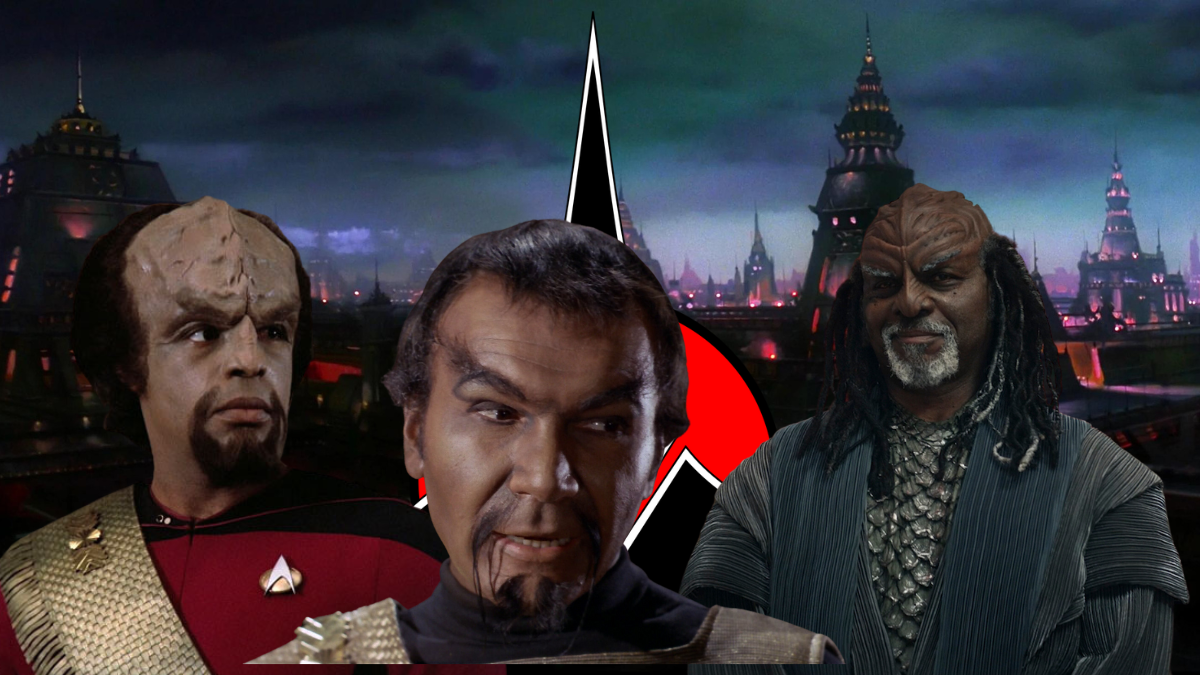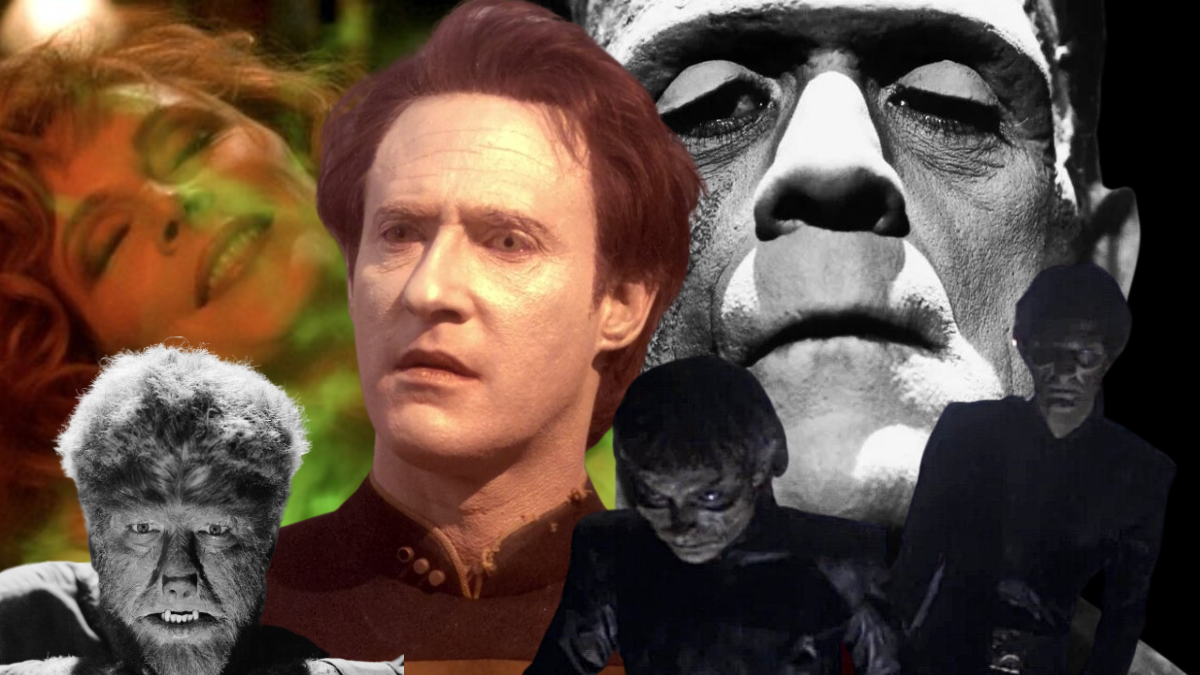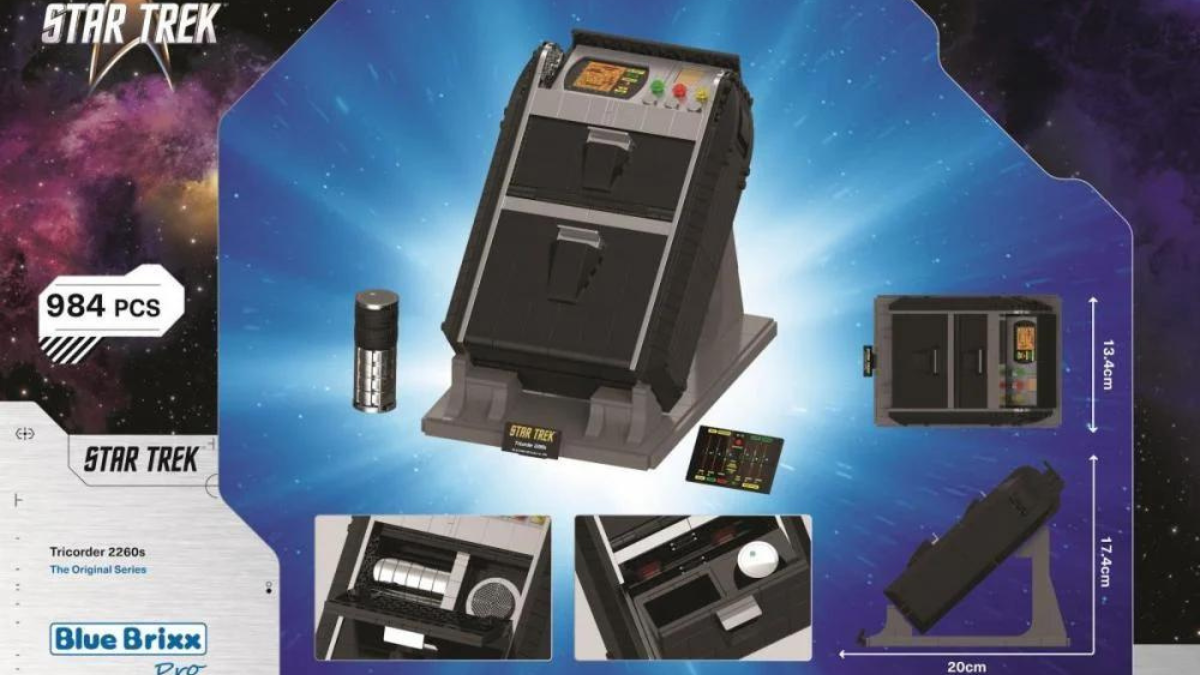GUEST POST: Derek Tyler Attico Comments On "The Evolution of STAR TREK and Us"

I met author Derek Tyler Attico when I interviewed him last year about his book The Autobiography of Benjamin Sisko. We immediately shared a connection, not just because of our love of Star Trek but also Sherlock Holmes and a host of other things.
Attico is one of a handful of writers who was “discovered” when he won the Star Trek Strange New Worlds writing contest - twice! Both stories are excellent, but it was his “Alpha & Omega,” a sequel to fan-favorite Star Trek: Deep Space Nine episode “Far Beyond the Stars,” that Simon & Schuster must have been thinking about when they invited him to write the latest in their Star Trek autobiography series.
We’re honored that Attico’s latest publication is right here on DSTN, and he makes a good case for why, in order for our favorite franchise to continue, we as fans need to grow with it.
Near the end of Star Trek: The Motion Picture, Spock comes to a profound revelation about the living ship known as V’Ger. The Vulcan tells Kirk and McCoy that V’Ger must evolve. For the living machine to reach its potential, it must move past its previous limitations and the confines of all it has done up until now.
Simply put: to grow, V’Ger needed to leave its comfort zone for new, uncharted territory and new ideas.
Over the years, I have watched the debate from fans about what is and what isn’t Star Trek. Many may be surprised to learn the debate didn’t start with a show about a Space Station with a nearby wormhole or a prequel starship with a Sporedrive. This debate started with Star Trek: The Next Generation. Fans said TNG wasn’t like the Star Trek of Kirk, Spock, and McCoy they loved. Then they said Deep Space Nine wasn’t like TNG because the themes were too dark; then they said because Voyager was lost in space, it wasn’t exciting. They said Enterprise didn’t feel like Star Trek, and now we hear much of the same for Discovery.
Whenever I heard one of these passionate arguments from a fan or critic, I often thought of Spock’s words and realized that Star Trek was doing what all intelligent and living (yes, living) things must do to survive and thrive in their environment.
Evolve.
I learned something exciting while watching the premiere of Star Trek: Discovery. Many of us came to Star Trek as children, watching it because our parents tuned in and turned us on to the television show, film, book, cartoon, or RPG that believes the future can be better and brighter not just for some but for all of us when we live and work together. That was my story: watching The Original Series (TOS) as a kid with my mom and then talking about each episode with her for hours. But my girlfriend was different. She occasionally watched various episodes of other series, but nothing stuck with her. Then, as we watched Discovery for the first time, I watched as it became her Star Trek. She told me she really loved Michael Burnham and Spock. I became excited about the possibility of sharing my first Star Trek (TOS) with her. I started to tell her about the incredible performances of Lenard Nimoy – the original Mr. Spock, but she wasn’t interested. The only Spock for her was the one now portrayed by Ethan Peck. And then it hit me: TOS and all the other versions of Star Trek weren’t the ones she identified with.
For her, they weren’t Star Trek.
Of course, they were still all part of the same universe, but they didn’t resonate emotionally with her as Discovery did. This wasn’t because of the writing or performances. I believe it’s something much more straightforward. As humans, we tend to overlook or ignore what we don’t immediately identify with or like. I call this unique phenomenon for Trek series the Star Trek effect. The time dilation can be different for every series and every viewer. Some fans don’t like something in particular about a new Star Trek show, and because we don’t identify with it, we classify it as not being Star Trek only to understand later, through the test of time, it was always Star Trek.
I was a perfect example of this.
When The Next Generation premiered, I remember thinking it didn’t feel like TOS. It was only when I started doing research for my Star Trek short story “Alpha and Omega” that I understood a new series didn’t have to be like an old one to still be Star Trek. As I watched TNG, I realized that much of what I enjoyed in TOS was in TNG. Upon closer examination, I understood there were four necessary core elements, which I have come to call the four foundational pillars of Star Trek. You will see these four elements in every episode, every film, every book, and other forms of media. Science, exploration, friendship, and perhaps the most important one, hope. When these four elements come together in an inclusive and bright future, you know you’re experiencing Star Trek.
The Star Trek universe continues to thrive for over half a century with over 800 hours of watchable content and with just as many books not because of dazzling special effects or cool starships and technology. Star Trek has always spoken to us directly by incorporating Science, exploration, friendship, and hope into the tapestry of its evolution to remain relevant in society and speak to every new generation.
But sometimes, to understand a message, we have to leave our comfort zone for new, uncharted territory and new ideas.
That’s how we evolve.
Derek Tyler Attico is a speculative fiction author, essayist, and award-winning photographer. In fiction, Derek has won the Excellence in Playwriting Award from the Dramatist Guild of America, and he is a two-time winner of the Star Trek Strange New Worlds short story contest (“Alpha & Omega,” “The Dreamer and the Dream”) published by Simon and Schuster. Derek is also the author of the bestselling, critically acclaimed Star Trek novel The Autobiography of Benjamin Sisko by Titan Publishing.
Outside of Star Trek, his short stories appear in Double Trouble and Turning the Tied from the International Association of Media Tie-In Writers, the NASA Exoplanet Science Institute at Caltech, Thrilling Adventure Yarns from Crazy 8 Press, and others. His essays appear in print from ATB Publishing and Star Trek Magazine.
Derek is also a contributing writer for the Star Trek Adventures tabletop role-playing game and a role-playing game designer. With a degree in English and History, Derek is an advocate of the arts, human rights, and inclusion. He can be found at DerekAttico.com and on social media platforms under the handle @Dattico.





